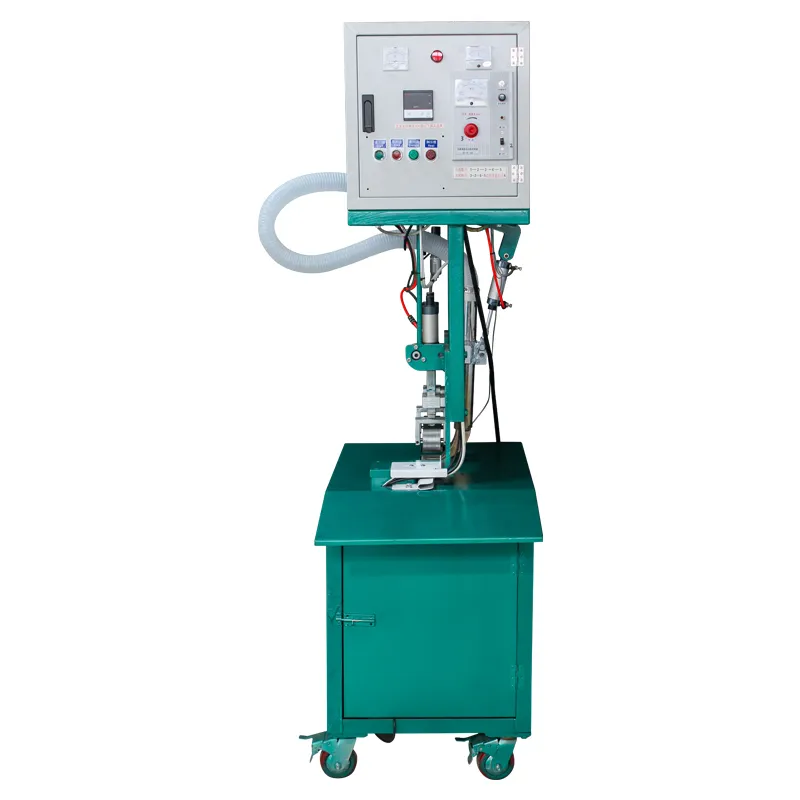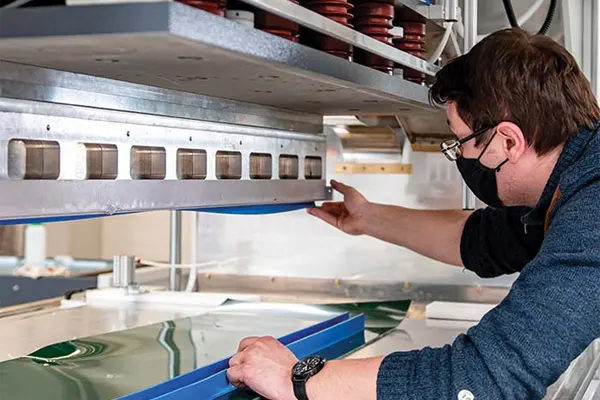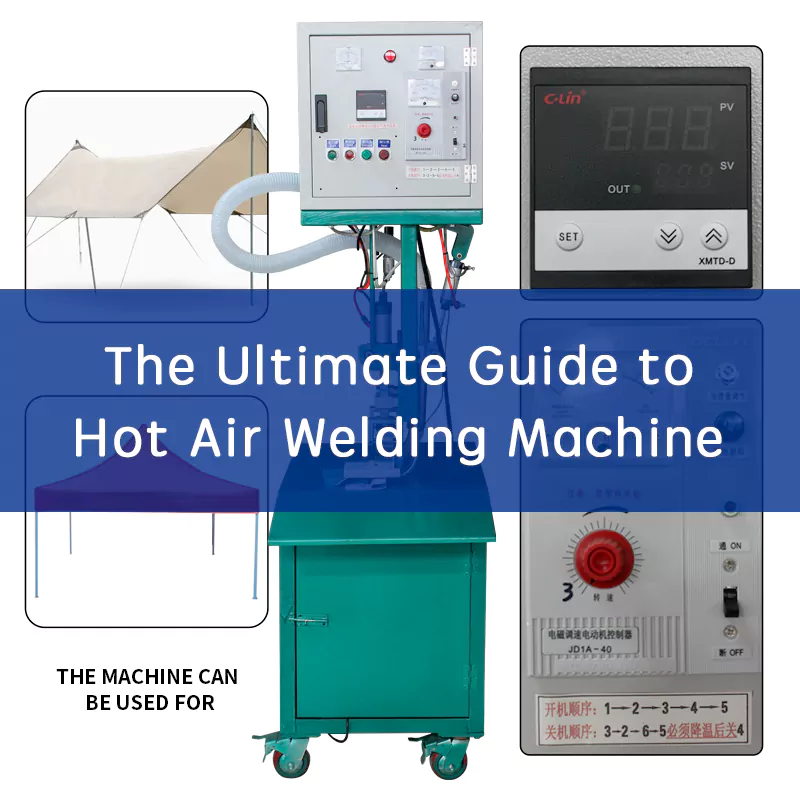Hot air welding machines are essential tools in various industries, offering precision and efficiency in sealing and bonding materials. These machines are particularly indispensable for applications involving tarpaulin, tent, and PVC membranes.
This guide will provide you with comprehensive insights into hot air welding machines, their benefits, applications, and what to consider when choosing the right machine for your needs.
What is a Hot Air Welding Machine?

A hot air welding machine is a device that uses heated air to join or seal thermoplastic materials. The process involves directing a stream of hot air onto the surfaces to be joined, causing them to melt and fuse together. This method is widely used in the fabrication and repair of products made from materials such as tarpaulin, tents, and PVC membranes.
How Do Hot Air Welding Machines Work?
Hot air welding machines operate by heating air to a specific temperature and directing it through a nozzle to the welding area. The key components of these machines include:
Heater: The component responsible for heating the air to the desired temperature.
Air Source: A fan or blower that supplies air to the heater.
Nozzle: Directs the heated air to the specific area of the material to be welded.
Control System: Allows the operator to adjust the temperature, airflow, and speed to suit different materials and thicknesses.
Roller: used to compact the heated plastic to make it fully fused.
Features of Hot Air Welding Machines

Our company’s developed and manufactured tarpaulin hot air welding machines are widely used for producing plastic tarpaulins, striped tarpaulins, rainproof cloth, sunshade cloth, flame retardant cloth, Oxford cloth, coated cloth, PE, PP, PVC cloth, lightbox advertising cloth, and all types of laminated cloth.
Performance Characteristics:
Versatile Sealing: Capable of both seam welding and edge rope attachment, with no limitations on length and width. Suitable for processing various transport truck covers, yard covers, sunshade and rain tarps, aquaculture tarps, tents, greenhouse covers, water towers, and air ducts.
Compact and Easy to Operate: Small size and easy operation, requiring only 1-2 people to operate.
Durability and Reliability: Long lifespan and high reliability, with adjustable temperature and speed. Advanced hot air welding technology is especially suitable for continuous high-temperature use.
Ideal for All Enterprises: The ideal choice for small businesses and medium to large enterprises. We provide spare parts all year round, ensuring worry-free maintenance and operation.
Applications of Hot Air Welding Machines
Hot air welding machines are used in numerous industries due to their ability to provide strong and reliable welds. Key applications include:
- Tarpaulin Sealing: Used in the production and repair of tarpaulins, these machines ensure waterproof and weather-resistant seams.
- Tent Manufacturing: Essential in creating robust and durable tents, particularly for outdoor and commercial use.
- PVC Membrane Sealing: Widely used in the construction industry for waterproofing and roofing applications.
High-Frequency Welding Machines vs Hot Air Welding Machines
What are High-Frequency Welding Machines?

High-frequency welding, also known as radio frequency (RF) or dielectric welding, utilizes high-frequency electromagnetic waves to generate heat within materials. This process melts and bonds the materials together, creating a strong, durable seam. High-frequency welding is particularly effective for thermoplastic materials, making it ideal for industries that require airtight and watertight seals.
Selecting the appropriate hot air welding machine depends on several factors:
Material Compatibility: Ensure the machine is compatible with the specific materials you will be working with.
Temperature Range: Different materials require different welding temperatures. Choose a machine that offers a suitable temperature range.
Airflow Control: Precise control over airflow is crucial for achieving strong, consistent welds.
Portability: Depending on your application, you may need a portable machine for on-site repairs or a stationary machine for factory use.
Automation: Some machines offer automated features for increased efficiency and consistency in production.
Conclusion
Hot air welding machines are indispensable tools for industries requiring precise and durable seals on thermoplastic materials. By understanding their operation, benefits, and applications, you can make informed decisions when selecting and using these machines. Regular maintenance and adherence to safety practices will ensure your hot air welding machine performs optimally and has a long service life. Embrace the latest technological advancements to stay ahead in your industry and achieve superior results with your hot air welding projects.

